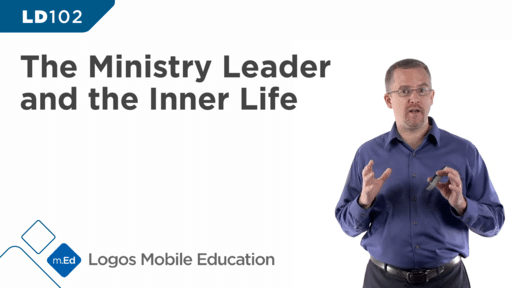LD102 The Ministry Leader and the Inner Life
Sign in to rateA lack of spiritual formation among ministry leaders has resulted in frequent ethical failures, lost positions, and devastated ministries. In LD102 Dr. Irving illustrates the need for attending to the inner life for anyone involved in ministry leadership. This course helps defend against spiritual burnout and ethical failures by walking you through a process of spiritual formation that is rooted in both community and the Holy Spirit. Dr. Irving offers a thorough explanation of contemporary leadership emergence theory, undergirding this work with a survey of spiritual gifts and providing a holistic approach to personal formation. This course concludes with a fourfold approach to discipleship that you will appreciate as much for yourself as for discipling others.
